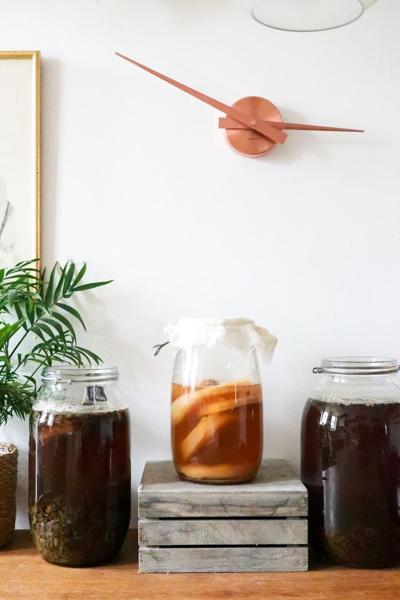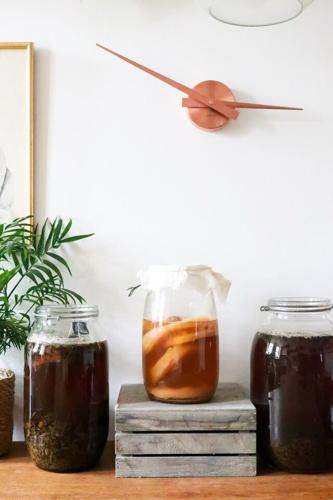Packaging waste is something that many people and industries take for granted. However, it's one of the most significant contributors to global pollution. In fact, out of the hundreds and millions of annual solid waste generated in the United States,63% consists of packaging materials. Not even half of that gets recycled or composted, leaving them to rot in landfills - causing more pollution. That's why people need to take packaging more seriously and switch to eco-friendly and sustainable practices.
Organic or sustainable packaging consists of recycled materials that aim to do as little harm to the environment as possible, reducing its carbon footprint over time. Whether you're running a business and want to go green or want to go on a trip and keep things sustainable and green for a better lifestyle, there are organic options for any of your packaging needs. Here are some.
Food Packaging
Surprisingly, there are several foods and ingredients that you can use to create eco-friendly and sustainable packaging options. The most popular one includes cornstarch, derived from the corn or maize plant. You can use it for bottles to loose-fill packaging. Another food you can use is mushrooms. Industries use the fungus by fusing it with agricultural waste and molding it into whatever packaging desired. You can easily compost mushroom-made packaging at home into non-toxic and organic matter.
Finally, a relatively newer option is seaweed. Thanks to the sea vegetable's gelatinous substance agar, it serves as a fantastic eco-friendly packaging alternative.
Eco-Friendly Fillers
Styrofoam peanuts or expanded polystyrene (EPS) are a staple for many industries, but it's incredibly toxic to the environment. A great eco-friendly alternative for these fillers is biodegradable packing peanuts, as they decompose faster than EPS and styrofoam. Moreover, for bubble wraps, you can use wrap made from up-cycled corrugated cardboard instead as bubble wrap doesn't deteriorate.
Recycled Papers and Cardboards
Besides plastic packaging, cardboard boxes are also an industry standard. Although cardboard and paper themselves are organic, they can harm the environment if they get sourced unsustainably. To ensure your materials are as eco-friendly as possible, source post-consumer or industrial recycled papers and cardboards. It's also best to see if the materials are Forest Stewardship Council (FSC) certified, guaranteeing all materials are sourced from sustainably managed forests.
Many in the medical and caregiving industry have no choice but to use packaging materials for hygienic purposes. Still, they could choose to use recyclable paper covers and cardboard for their medical packaging. Many hospices and clinics are also trying to lessen medical waste, which has only intensified with the pandemic. Using recycled materials could be one way, but researchers say there is more that needs to be done.
Organic Fabrics
Plastic packaging has been a staple in impacting the well-being of the environment. An alternative that you can use is using organic fabrics to create reusable bags. There are several organic fabrics that you can use, including hemp, recycled cotton, tapioca, and palm leaves. Even when you throw out these materials, they can biodegrade in just 100 days, which is astronomically better than the the1,000 years it takes for plastic bags to biodegrade.
Some designers have focused on organic fabrics to promote traditional weaving that is unique to some cultures. In a way, it has become almost a travel cliche: The organic material and the special weave as a traveler's souvenir. But it is more than a mere souvenir; for many, it has become a livelihood and a testament to their culture too. Adding how it makes for a sustainable clothing industry only makes it more appealing for the conscientious traveler.
Recycled Plastics
There's no going around it - some shipping requires sturdy material that isn't going to break easily and can support heavy loads. While there are alternatives that use organic materials, expect to face situations where plastic is your only viable option. You don't need to cut back on your eco-credentials for this, as several plastic packaging materials consist of 100% recycled plastic.
The restaurant and travel industry are trying to use recycled plastics for their products, with many hotels partnering with providers who only use recycled plastic for their toiletries. Some restaurants have also used them for their home deliveries, with paper plates and plastic spoons and forks made from recycled materials.
Everybody knows how important it is to lessen their impact on the environment, and a great way to contribute is by choosing eco-friendly packaging options like the ones mentioned. Using them can go a long way in reducing the waste that typically ends up in landfills and oceans.






(0) comments
We welcome your comments
Log In
Post a comment as Guest
Keep it Clean. Please avoid obscene, vulgar, lewd, racist or sexually-oriented language.
PLEASE TURN OFF YOUR CAPS LOCK.
Don't Threaten. Threats of harming another person will not be tolerated.
Be Truthful. Don't knowingly lie about anyone or anything.
Be Nice. No racism, sexism or any sort of -ism that is degrading to another person.
Be Proactive. Use the 'Report' link on each comment to let us know of abusive posts.
Share with Us. We'd love to hear eyewitness accounts, the history behind an article.